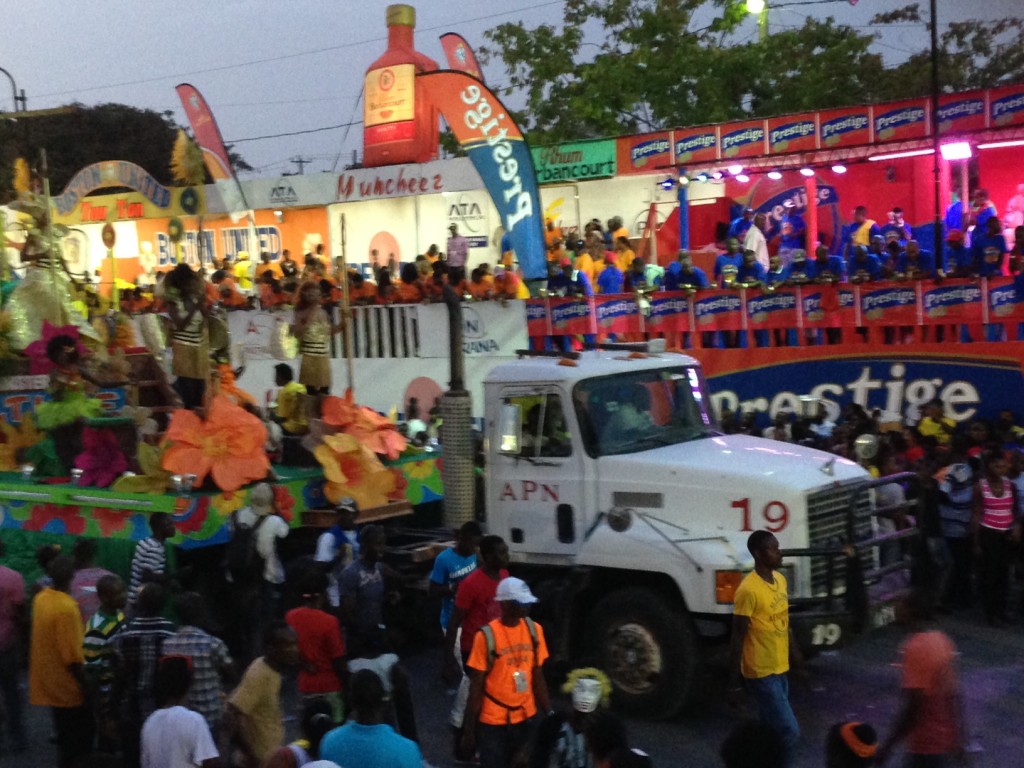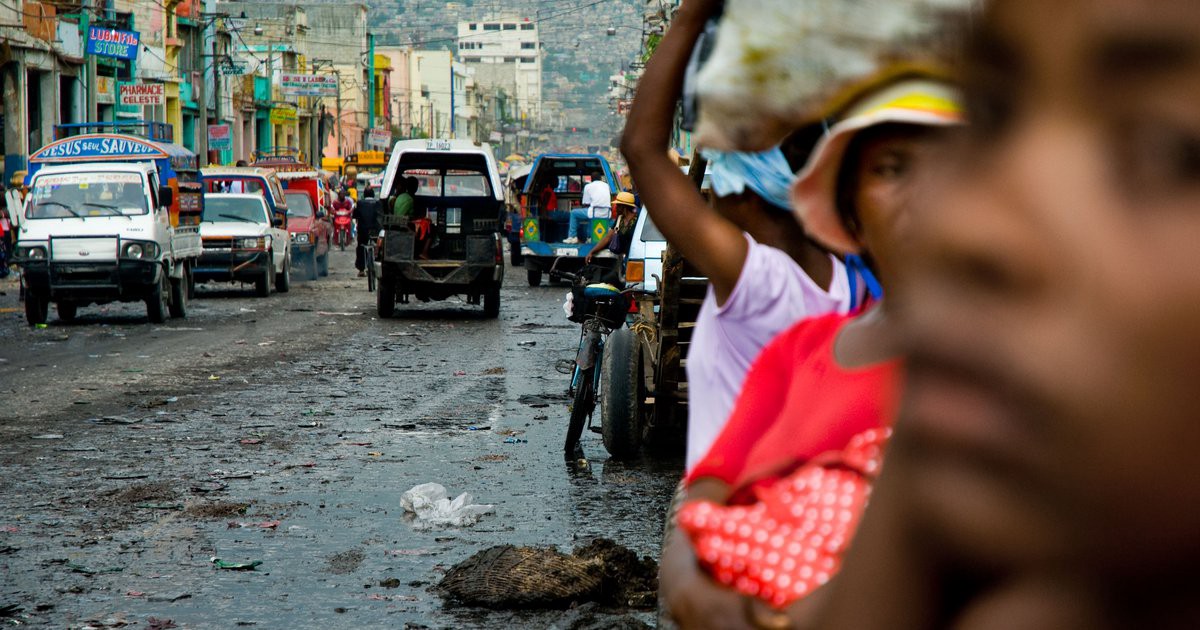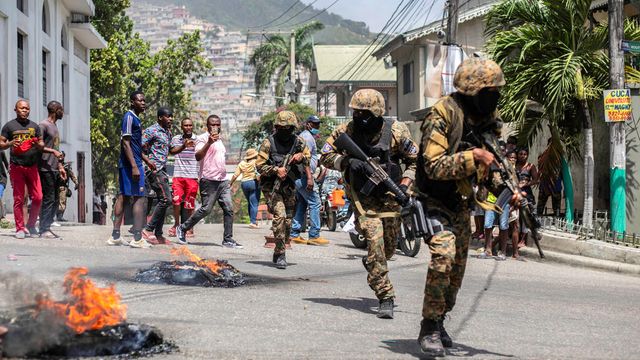Haiti and the state of collapse
Haiti has formally established a transitional council to fill a leadership vacuum by choosing a new prime minister, and to restore order in the Caribbean country ravaged by gang violence. Here’s some crucial context from the March13 edition of This Week, Those Books. Read it here or sign up for free at https://thisweekthosebooks and get the post the day it drops
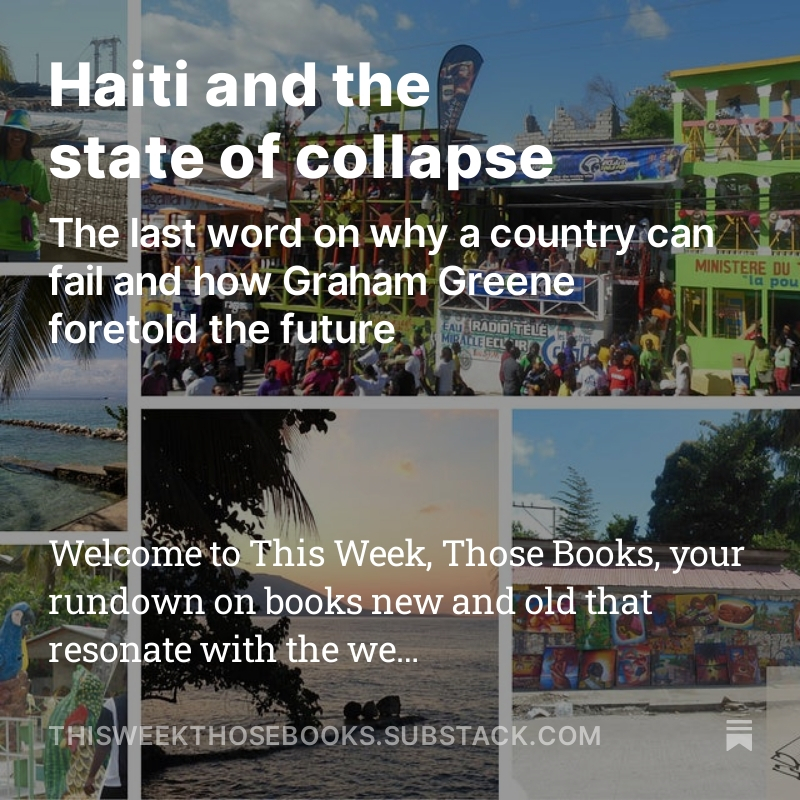
Welcome to This Week, Those Books, your rundown on books new and old that resonate with the week’s big news story.
The few minutes it takes to read this newsletter will make you smarter, faster. These book suggestions come with a summary and quotes. So even if you don’t read the actual book, you’ll be able to discuss it. I never recommend a book I don’t like and I look through a number every week to find the few I share. Find me on Twitter, LinkedIn, Facebook or YouTube.
Yours,

The Big Story:
Haiti is in a state of anarchy. Armed gangs, in control of most of the capital Port au Prince, are pushing to be part of a new power-sharing deal in a country without any functioning government.
- The poorest country in the Latin America and Caribbean region, Haiti seems to be in a steeper downward spiral than at any time in its history.
- January 1, 2024 marked 220 years since a successful slave revolt against France led to Haiti becoming the world’s first free black republic.
- As someone who lived in Haiti and reported from there for three years, I know that it has had its troubles over the decades. But the crisis has never been so existential.
- Nearly 60 per cent of Haiti’s 11 million people live below the poverty line set by the World Bank at $2.15 per person per day. Their situation is aggravated by environmental degradation, natural disasters, insecurity and institutional collapse. And now, criminal gangs run amok.
- According to the chair of the Caribbean Community (Caricom) group of nations, Guyana’s president, Mohamed Irfaan Ali: “more people have died in Haiti in the early part of this year than in Ukraine”. An aid worker who flew into Haiti late February, after six months in Ukraine, has said Port au Prince is “worse” than Kyiv. Remember, Haiti isn’t even fighting a hot war launched by a foreign entity.
- So, is Haiti a failed state now? Worse, is it a collapsed state? What’s the difference and does it matter?
The Backstory:
- The term ‘failed state’ has been in use since the early 1990s when senior US diplomat Gerald B Helman and academic Steven R Ratner wrote about “a disturbing new phenomenon” whereby a state was becoming “utterly incapable of sustaining itself as a member of the international community”. (Click here for a pdf of the piece.)
- They argued that a failed state would imperil its own citizens and threaten neighbours through “refugee flow, political instability and random warfare”. Haiti was the second word in the first sentence of their article; Somalia, Sudan and Liberia followed soon after.
- Increasingly now, the talk is of “fragility” rather than failure. The World Bank refers to fragile “situations”, the OECD publishes a “States of Fragility” report and an American non-profit compiles a Fragile States Index.
- As this week’s first book indicates, Haiti may be beyond fragile or failed.
This Week, Those Books:
- The last word on struggling states, edited by a renowned historian, academic and man of peace.
- Graham Greene’s classic novel about Haiti as a failing state, some 30 years before the term came into being.

- When States Fail: Causes and Consequences
Edited by Robert I. Rotberg
Publisher: Princeton University Press
Year: 2004
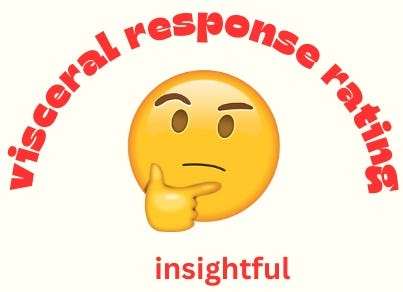
A 20-year-old collection of essays by a clutch of renowned scholars, this book sadly, remains topical. And insightful. It covers failing states, failed ones and the once collapsed state of Somalia. Not only are the reasons and symptoms of state failure fleshed out, the essays provide ideas for prevention, as also resuscitation. Crucially, they provide hope. Editor Robert I Rotberg writes that “failure need not be preordained…To fail a state is not that easy. Crossing from weakness into failure takes will as well as neglect. Thus, weak nation-states need not tip into failure”. He points out that “Lebanon, Nigeria, and Tajikistan recovered from collapse, and are now weak. Afghanistan and Sierra Leone graduated from collapse to failure. In 2003 Zimbabwe and Côte d’Ivoire were moving rapidly from strength toward catastrophic failure”. And he adds: “Although a state like Haiti is termed endemically weak, most categorizations are snapshots. The quality of failed or collapsed is real, but need not be static. Failure is a fluid halting place, with movement back to weakness and forward into collapse always possible.”
The book also challenges the cast iron belief in the nation state as a necessary organising principle, one that must succeed at all costs. In fact, as one contributor points out, prior to the mid 20th century, it was common for states to fail and for borders to be redrawn. The late great American sociologist Charles Tilly is quoted to observe that the “enormous majority” of European states formed after 1500 failed.
Reading this book while the crisis in Haiti unfolds, it’s hard not to relate the words on the page to the reportage from Port au Prince: “A collapsed state is a rare and extreme version of a failed state. A collapsed state exhibits a vacuum of authority. It is a mere geographical expression, a black hole into which a failed polity has fallen. There is dark energy, but the forces of entropy have overwhelmed the radiance that hitherto provided some semblance of order and other vital political goods to the inhabitants (no longer the citizens) embraced by language or ethnic affinities or borders.”

- The Comedians
By: Graham Greene
Publisher: Bodley Head
Year: 1966
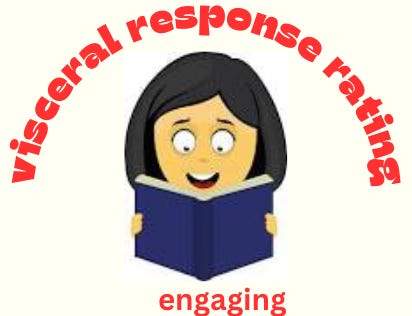
Nearly 60 years after the novel was published, Haiti hasn’t progressed a great deal beyond the country depicted by Graham Greene. Though the current violence and the massive 2010 earthquake destroyed many of the landmarks described in the book, and there are no longer the powerful Tonton Macoutes paramilitary forces or the Duvalier dictatorship, the gangs still roam the streets of Port au Prince. A lot would have to change for this novel to age into irrelevance. As thing stand, it might almost have sprung from our news feeds.
Originally published at This Week, Those Books


